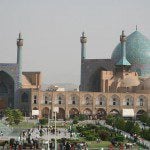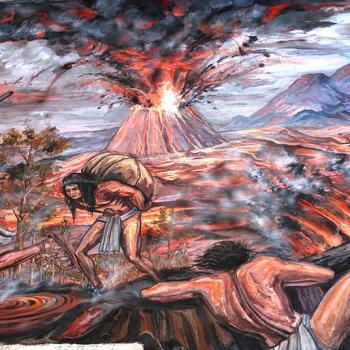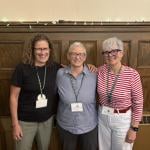
Moving on down the road:
The scriptures even offer guidance on the troubling problem of how Israel should treat the Palestinians who live under its control.
And if a stranger sojourn with thee in your land, ye shall not vex him. But the stranger that dwelleth with you shall be unto you as one born among you, and thou shalt love him as thyself; for ye were strangers in the land of Egypt: I am the Lord your God.[1]
When injustices are perpetrated by any side in the Near East, we must be clear-sighted enough to recognize them and honest enough to condemn them wherever they occur and whoever is responsible. “Speak for justice,” the Qur’an says, “even if it affects your own kinsmen.”[2]
For the vineyard of the Lord of hosts is the house of Israel, and the men of Judah his pleasant plant: and he looked for judgment [justice], but behold oppression; for righteousness, but behold a cry.[3]
How is the faithful city become an harlot! it was full of judgment [justice]; righteousness lodged in it; but now murderers.[4]
The ancient prophets of Israel were willing to condemn injustices committed by their people within the Holy Land itself. Indeed, they were more concerned about injustice and unrighteousness among the chosen people than with similar offenses committed elsewhere, because they held Israel to a higher standard. “For of him unto whom much is given much is required; and he who sins against the greater light shall receive the greater condemnation.”[5] It was because the prophets loved Israel that they sought to make it better. We ourselves can do no less, for ourselves and for the rest of the house of Israel. It will not suffice for us to choose sides, to pick a team in the way the world does, and then to pretend not to notice the outrages and injustices committed by our alleged allies. Leaders of the Church have repeatedly reminded us that the Church as such takes absolutely no position on the Arab-Israeli conflict. President Howard W. Hunter put this quite clearly while yet a member of the Council of the Twelve:
We do not need to apologize nor mitigate any of the prophecies concerning the Holy Land. We believe them and declare them to be true. But this does not give us justification to dogmatically pronounce that others of our Father’s children are not children of promise.
Elder Hunter admonished
members of the Church who give the impression that we favor only the aims of the Jews. The Church has an interest in all of Abraham’s descendants… Both the Jews and the Arabs are children of our Father. They are both children of promise, and as a church we do not take sides.[6]
[1] Leviticus 19:33-34.
[2] 6:152.
[3] Isaiah 5:7.
[4] Isaiah 1:21.
[5] Doctrine and Covenants 82:3.
[6] Howard W. Hunter, “All Are Alike Unto God,” Ensign 9 (June 1979), 72-72. Compare also the statements of Elders Hunter, William R. Bradford, and W. Grant Bangerter, recorded respectively at Baldridge, Grafting In, i; 57; and Barrett, The Story of the Mormons in the Holy Land, 102. David B. Galbraith, first president of the Jerusalem. Branch and holder of a doctorate in political science from the Hebrew University of Jerusalem, makes much the same point at Baldridge, Grafting In, 65.
Posted from Newport Beach, California












